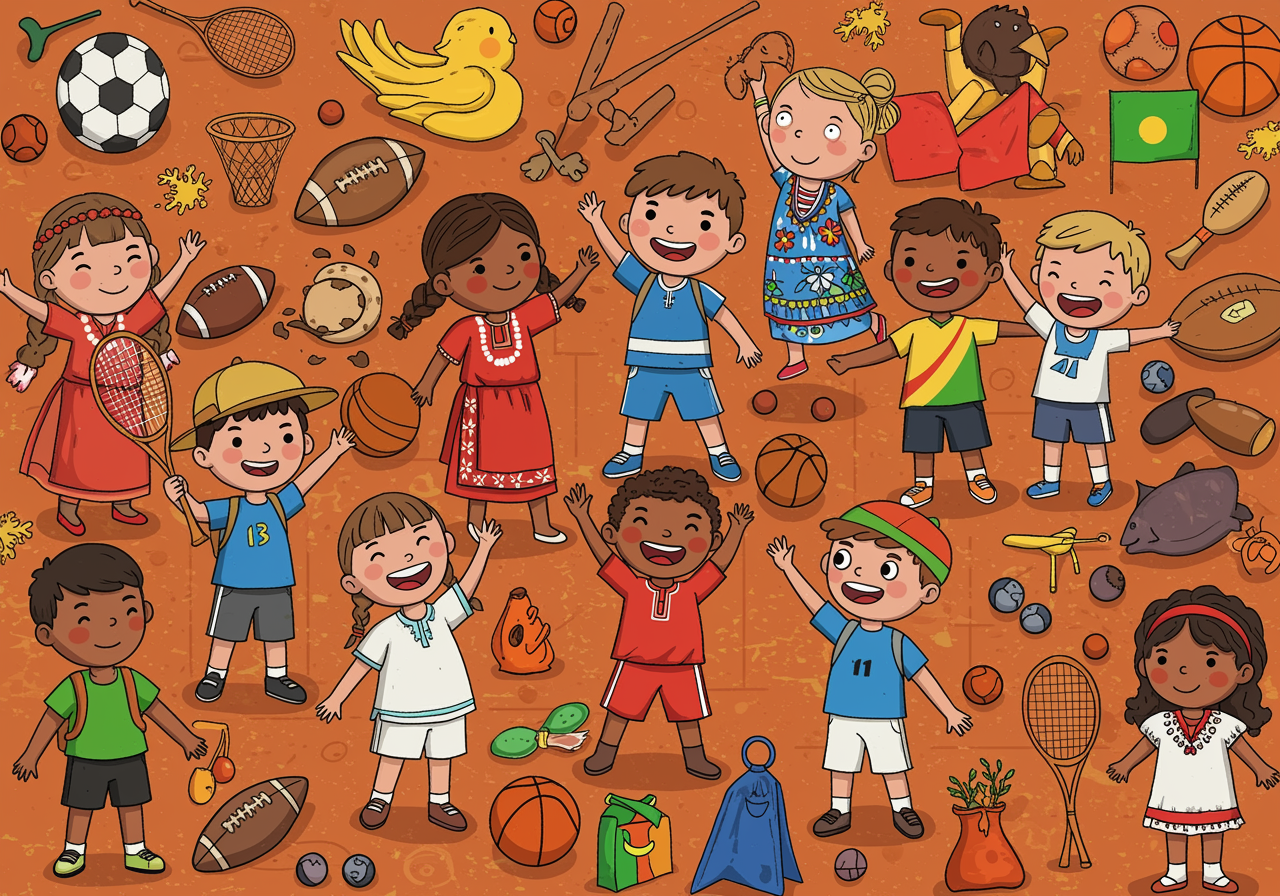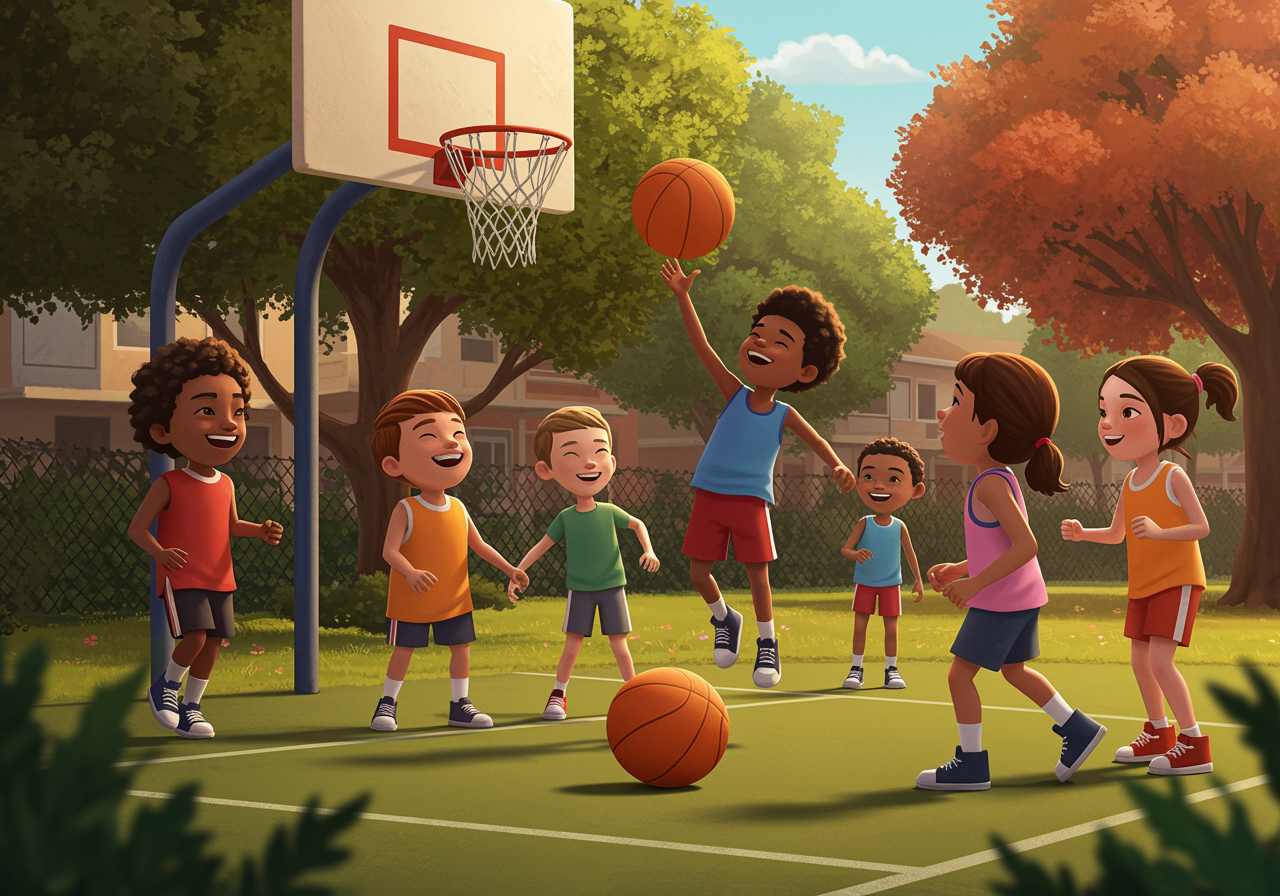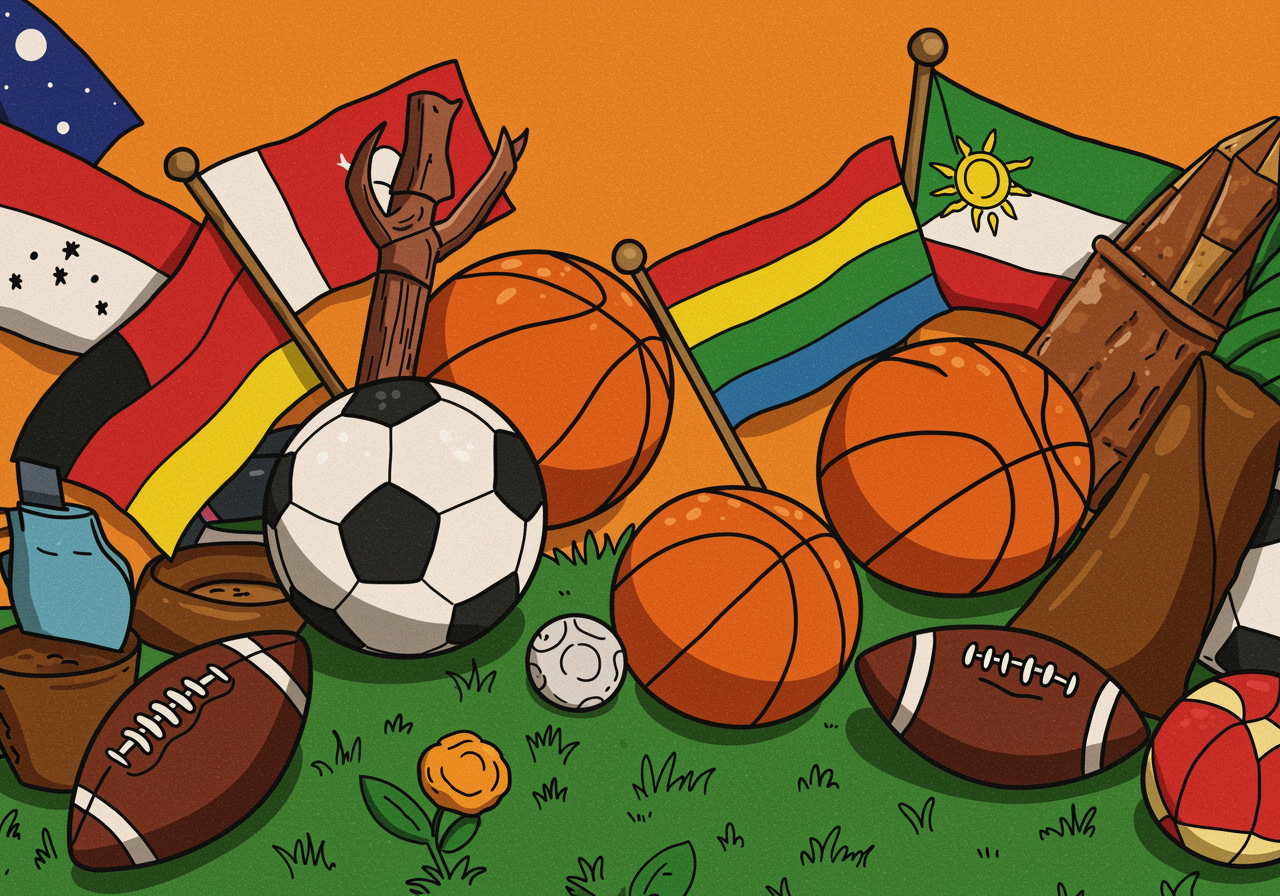The Universal Language of Sports: How Games Unite the World

Discover how a simple goal celebration can bring together people from every corner of the planet
Explore how sports create instant friendships and shared excitement that crosses every border, language, and cultural difference.
Overview
Think about the last time you watched a really exciting game – maybe your heart was pounding, you were cheering, and you felt connected to everyone around you who was feeling the same thing. That exact same feeling happens to people all over the world when they watch sports, no matter what language they speak or where they're from. Sports create this amazing invisible bridge between cultures because the emotions are universal – everyone understands what it feels like to hope your team wins, to celebrate a great play, or to feel disappointed when they lose. It's like having a conversation without words, where a high-five means the same thing whether you're in Tokyo, Lagos, or right in your own hometown.

Understand in 30 Seconds
Get up to speed quickly
- Sports Speak Every Language: A soccer goal celebration looks the same whether it's in Brazil, Germany, or your local park. The joy, excitement, and teamwork translate instantly across any cultural barrier.
- Shared Emotions Create Bonds: When people cheer for the same team or admire an amazing play, they instantly feel connected – even if they can't speak each other's language.
- Global Events Bring Everyone Together: The Olympics and World Cup create moments where billions of people worldwide are watching, feeling, and experiencing the same emotions at the exact same time.
- Sports Break Down Barriers: On the field or court, what matters isn't where you're from but how well you play and how you treat your teammates and opponents.
Real Life Scenario
Situations you can relate to
Imagine you're at a pickup basketball game at your local park, and a new kid shows up who doesn't speak much English – maybe their family just moved from another country. At first, it might feel awkward. But then someone passes them the ball, they make a great shot, and suddenly everyone's high-fiving and smiling. No words needed! The game itself becomes the conversation. You start figuring out they're really good at defense, they learn you have a killer three-point shot, and by the end of the game, you're planning to meet up again tomorrow. Have you ever noticed how sports can turn strangers into teammates in just minutes? That same magic happens on a global scale – when athletes from different countries compete together or against each other, they're speaking the universal language of competition, respect, and shared passion.

Role Play
Spark a conversation with “what if” scenarios
What if you were watching the World Cup final with families from five different countries?
- Role play: Take turns being fans from different countries, sharing your team's chant or celebration dance, then all cheer together for amazing plays regardless of which team made them.
What if you had to teach someone a sport using only gestures and demonstrations?
- Role play: Pick a sport and try to explain the rules to each other without talking – show how this is exactly how sports cross language barriers.
What if you were an Olympic athlete meeting competitors from around the world?
- Role play: Practice exchanging team pins, learning basic greetings in different languages, and showing respect for different cultural traditions while competing.
FAQs
Frequently asked questions people want to know
Why do sports seem to connect people better than other activities?
Sports involve shared emotions, clear rules everyone can understand, and physical expressions (like celebrating) that mean the same thing everywhere. Plus, everyone can appreciate skill and effort, no matter the cultural background.
Don't people sometimes fight over sports instead of connecting?
While rivalries exist, the vast majority of sports interactions create positive connections. Even intense competition usually leads to mutual respect, and shared love of the game often outweighs temporary rivalries.
How can sports help me understand other cultures?
Different countries often have unique sports, playing styles, and traditions around games. Learning about these differences while appreciating the universal love of competition helps you see both what makes cultures unique and what makes us all human.
Examples in the Wild
See how this works day to day
- During the 2022 World Cup in Qatar, fans from Argentina and Netherlands were seen sharing food and teaching each other traditional chants before their intense semifinal match, showing how sports create friendships even between rivals. (FIFA World Cup 2022 official reports)
- The Olympic Village has become famous for athletes exchanging cultural gifts, learning each other's languages, and forming lifelong friendships across national boundaries, with many reporting it as their favorite part of the Games. (International Olympic Committee athlete surveys)
- Basketball courts in refugee camps worldwide use the same sport to help displaced children from different countries connect and process trauma together, regardless of their native language or cultural background. (UNHCR sports program documentation)
- The viral videos of opposing soccer players helping each other up after hard fouls, or exchanging jerseys after emotional matches, consistently become the most shared sports content across all cultures on social media. (Social media analytics from major sports platforms)
In Summary
What you should know before you start
- Sports create a universal language where emotions, respect, and excitement translate across any cultural or language barrier
- Major global sporting events like the Olympics and World Cup give billions of people shared experiences at the exact same moment
- The rules and spirit of fair play in sports teach values that every culture appreciates: teamwork, perseverance, and respect for opponents
- Young people especially connect through sports because physical play and competition are natural ways humans bond, regardless of background
Pro-tip for Parents
You got this!
If your teen seems hesitant to discuss cultural differences, start with sports they already love. Ask them to imagine their favorite athlete playing on a team with people from around the world, or what it would be like to attend a World Cup match. Sports provide a 'safe' entry point for talking about diversity because the focus is on shared excitement rather than differences. When they see how naturally athletes from different backgrounds work together, it becomes easier to discuss how this same principle applies to school, work, and community life.

Keep an Eye Out For
Find these examples in everyday life
- International sporting events where you can point out athletes from different countries showing respect and friendship
- Local diverse sports teams in your community where kids from different backgrounds play together
- News stories about sports bringing people together during difficult times or natural disasters
Explore Beyond
Look up these related research topics
- How music and art also create cultural bridges around the world
- The history of how specific sports spread from one culture to many others
- How food traditions bring people together across cultural differences